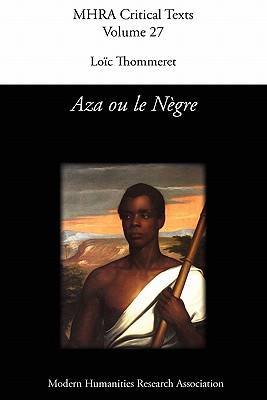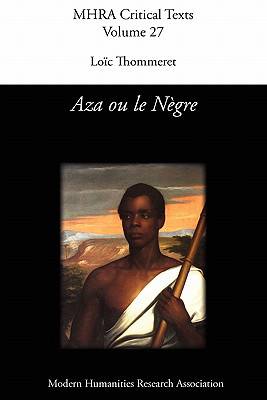
- Retrait gratuit dans votre magasin Club
- 7.000.000 titres dans notre catalogue
- Payer en toute sécurité
- Toujours un magasin près de chez vous
- Retrait gratuit dans votre magasin Club
- 7.000.0000 titres dans notre catalogue
- Payer en toute sécurité
- Toujours un magasin près de chez vous
Description
Aza ou le Nègre is a slave novel that was published anonymously in 1792, during the French Revolution. It differs from other contemporaneous works like Jean-François de Saint-Lambert's Ziméo and de Germaine de Staël's Mirza because, despite their advocacy for abolition, Ziméo and Mirza remain largely Eurocentric. By contrast, because it is largely narrated in the first person, Aza ou le Nègre makes for an Afrocentric fiction whence 'the White man' is markedly absent. In having its hero Aza return to his native Africa, this novel purports to envision an after-slavery locus. Aza ou le Nègre thus can be read in a post-modern perspective where an African hero takes his destiny into his own hands and turns his back on the West to offer his own Afrocentric solution to the issue of slavery. The book concludes with a seminal treatise that summarizes the Société des Amis des Noirs' ideology championed in Aza: Étienne Clavière's Adresse de la Société des amis des noirs à l'assemblée nationale, dating from 1791 Loïc Thommeret is lecturer in French at Oberlin College.
Spécifications
Parties prenantes
- Editeur:
Contenu
- Nombre de pages :
- 156
- Langue:
- Français
- Collection :
Caractéristiques
- EAN:
- 9781907322150
- Date de parution :
- 01-03-11
- Format:
- Livre broché
- Format numérique:
- Trade paperback (VS)
- Dimensions :
- 156 mm x 234 mm
- Poids :
- 226 g

Les avis
Nous publions uniquement les avis qui respectent les conditions requises. Consultez nos conditions pour les avis.





